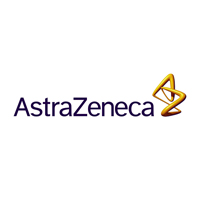AstraZeneca plc (LON:AZN) today announced that the US Food and Drug Administration has granted Orphan Drug Designation to Fasenra (benralizumab) for the treatment of eosinophilic oesophagitis (EoE).
EoE is a rare, chronic, inflammatory disease that occurs when eosinophils, a type of white blood cell, accumulate in the oesophagus causing injury and inflammation.1 The FDA grants ODD status to medicines and potential new medicines intended for the treatment, diagnosis or prevention of rare diseases or disorders that affect fewer than 200,000 people in the US.
Mene Pangalos, Executive Vice President, BioPharmaceuticals R&D, said: “Eosinophilic oesophagitis is an allergic inflammatory disease that can affect children and adults, and typically patients experience a range of debilitating symptoms including severe pain and difficulty swallowing food. Currently there are no FDA-approved treatments for eosinophilic oesophagitis. Because Fasenra depletes eosinophils in blood and tissue, it could become a potential new medicine to treat patients with this rare disease.”
Fasenra is AstraZeneca’s first respiratory biologic medicine and is currently approved as an add-on maintenance treatment for severe, eosinophilic asthma in the US, EU, Japan and other countries. In November 2018, the FDA granted ODD for Fasenra for the treatment of eosinophilic granulomatosis with polyangiitis (EGPA), and also granted ODD for the treatment of hypereosinophilic syndrome (HES) in February 2019.
About EoE
EoE is a rare, chronic, inflammatory disease of the oesophagus characterised by the accumulation of eosinophils, a type of white blood cell that are a normal part of the immune system, in the oesophageal lining tissue. The disease results in injury, fibrosis and dysfunction that if not effectively treated can make eating difficult or uncomfortable, potentially leading to chronic pain, difficulty swallowing, poor growth, malnutrition and weight loss.1
The most common symptoms of EoE include reflux that does not respond to medication, difficulty swallowing, food becoming stuck in the oesophagus, nausea and vomiting, abdominal or chest pain, poor appetite and difficulty sleeping.1
Patients are often treated with corticosteroids to manage inflammation. Currently there are no FDA-approved treatments for EoE.1
About Fasenra
Fasenra (benralizumab) is a monoclonal antibody that binds directly to the IL-5 receptor alpha on eosinophils and attracts natural killer cells to induce rapid and near-complete depletion of eosinophils via apoptosis (programmed cell death).2,3
Fasenra is AstraZeneca’s first respiratory biologic, now approved as an add-on maintenance treatment in severe eosinophilic asthma in the US, EU, Japan and other countries, with further regulatory reviews ongoing. In June 2019, the European Medicines Agency’s Committee for Medicinal Products for Human Use (CHMP) issued a positive opinion for Fasenra self-administration and the Fasenra pen, a new auto-injector delivery device. Fasenra is in development for severe nasal polyposis, eosinophilic oesophagitis, eosinophilic granulomatosis with polyangiitis, hypereosinophilic syndrome and chronic obstructive pulmonary disease.
Fasenra was developed by AstraZeneca and is in-licensed from BioWa, Inc., a wholly-owned subsidiary of Kyowa Hakko Kirin Co., Ltd., Japan.
About AstraZeneca in respiratory diseases
Respiratory is one of AstraZeneca’s three therapy areas, and our medicines reached more than 18 million patients as maintenance therapy in 2018. AstraZeneca’s aim is to transform asthma and COPD treatment through inhaled combinations at the core of care, biologics for the unmet needs of specific patient populations, and scientific advancements in disease modification.
The Company is building on a 40-year heritage in respiratory disease and AstraZeneca’s capability in inhalation technology spans pressurised metered-dose inhalers and dry powder inhalers, as well as the Aerosphere delivery technology. The company also has a growing portfolio of respiratory biologics including Fasenra (anti-eosinophil, anti-IL 5 alpha), and tezepelumab (anti-TSLP) which has been granted Breakthrough Therapy Designation by the US Food and Drug Administration in patients with severe asthma and is in Phase III trials. AstraZeneca’s research aims at addressing underlying disease drivers by focusing on the lung epithelium, lung immunity, lung regeneration and neuronal functions.
About AstraZeneca
AstraZeneca is a global, science-led biopharmaceutical company that focuses on the discovery, development and commercialisation of prescription medicines, primarily for the treatment of diseases in three therapy areas – Oncology, Cardiovascular, Renal & Metabolism, and Respiratory. AstraZeneca operates in over 100 countries and its innovative medicines are used by millions of patients worldwide. For more information, please visit astrazeneca.com and follow us on Twitter @AstraZeneca.







































